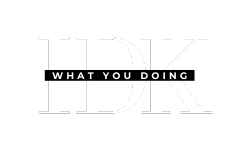Searching for a solution to “beat the market” in 2024 and past? In that case, you’ve most likely heard concerning the market-beating potential of personal fairness investments. The newest U.S. Private Equity Index from Cambridge Associates reviews a median return of about 15% from June 2003 to June 2023, in comparison with 10% on the Russell 3000 Index. Nevertheless, earlier than diving into non-public fairness investing, on a regular basis traders needs to be conscious of some essential issues.
For nearly 100 years, the world of personal fairness was largely “off limits” to Fundamental Avenue traders. Legally talking, solely accredited traders had been allowed to put money into non-public fairness choices.
However due to the Jumpstart Our Business Startups (JOBS) Act — and an inflow of latest publicly listed non-public fairness choices — on a regular basis traders are seeing a Cambrian explosion in entry to personal fairness alternatives.
How Non-public Fairness Investing Has Modified in Latest Years
It’s price noting that non-public investments akin to non-public fairness, hedge funds, and enterprise capital funds sometimes require particular person traders to be accredited: they will need to have an revenue of greater than $200,000 for a person and $300,000 if married and submitting collectively for 2 years previous to investing, or a web price of $1 million, excluding a main residence.
Within the early ’80s, solely 1%-2% of households had been thought-about accredited. Nevertheless, as a result of the monetary thresholds to grow to be an accredited investor haven’t been listed to inflation, greater than 13% of all American households now qualify.
Regardless of this rising variety of eligible households, non-public fairness nonetheless operates like a personal membership. To get entry to alternatives, you most likely should be a consumer of a name-brand monetary establishment. That’s to not point out the executive challenges like 200-page subscription paperwork, underwriting, and complex phrases most individuals don’t perceive.
With that stated, the largest innovation in non-public fairness has been the JOBS Act of 2012. Because of this landmark piece of laws, two essential issues occurred.
The primary was lifting the ban on “common solicitation” and promoting for particular varieties of non-public market offers. Earlier than this ban was lifted, the one solution to get into a personal deal was to “know a man,” because it was in any other case unlawful for them to promote the chance. Nevertheless, these choices — referred to as Rule 506(c) of Regulation D — had been nonetheless restricted to accredited traders solely.
Then, in 2016 Title III of the JOBS Act went into impact, introducing a brand new framework that allowed each accredited and nonaccredited traders to put money into non-public market offers. Extra generally often known as Regulation Crowdfunding, this framework created a brand new pathway for corporations looking for investments to boost capital from anybody over the age of 18, no matter revenue or web price.
There’s little question the JOBS Act reworked funding banking and capital markets as we all know it. however the looser regulatory and disclosure necessities carry dangers and will open the door for elevated fraud.

The Largest Dangers of Non-public Fairness Investing
One of the vital widespread questions requested by individuals contemplating non-public fairness is a few model of, “How a lot can I make?” and “How briskly can I make it?” Whereas there’s a potential to make important returns in a brief interval, there may be additionally loads of danger that comes with it.
Outright fraud is at all times a priority in terms of early-stage investing. However outdoors of that, the important thing dangers are the identical basic dangers which are current in any funding:
- Valuation Threat: Are you investing at an excellent worth? If the objective is to generate income as an investor, you don’t wish to harm your possibilities by overpaying.
- Execution Threat: Can the administration workforce execute on the marketing strategy they’ve introduced? If not, the returns probably received’t be what you anticipate.
- Market Threat: May forces outdoors of the administration workforce’s management injury the corporate? It occurs on a regular basis, and that’s simply a part of the dangers you’re signing up for as an investor.
Nevertheless, most retail traders can’t precisely consider these dangers and, subsequently, have problem understanding the precise dangers they’re taking on the worth and phrases being provided.
What Are the Tax Implications?
Until you’re investing right into a fund construction — or in any other case receiving revenue reporting on a Ok-1 or 1099 — there actually aren’t any tax implications outdoors of regular due course. For those who’re investing in non-public credit score or cash-flowing actual property offers, taxes might be a consideration. In any other case, for many non-public fairness performs, it’s a three- to five-year maintain, a minimum of.
The one time you’ll incur tax legal responsibility could be on the asset’s sale (or disposal). This implies you’ll be taxed on the long-term capital features fee, similar to another funding you’ve held for greater than 12 months.
5 Methods for Investing in Non-public Fairness as an On a regular basis Investor
With all of the nuances, it may be tough to navigate non-public fairness investing. Listed here are 5 steps for on a regular basis traders to include non-public fairness investments into their portfolios whereas balancing danger with potential returns:
1. Develop a complete monetary plan.
Earlier than making any funding choices, it’s essential to have a well-defined monetary plan that aligns along with your private monetary objectives. This plan ought to embody funds administration, money circulation, bills, and important recordkeeping, as these components contribute considerably to reaching monetary targets.
2. Create an Funding Coverage Assertion.
Set up an funding coverage assertion — a written doc that outlines your portfolio allocation, goal returns, and guidelines for rebalancing. It’s important to base your funding technique on affordable forecasted returns, sometimes within the 6%-10% per yr vary. Keep away from the temptation to pursue excessively excessive returns, as this will result in taking up pointless danger.
3. Concentrate on Draw back Safety and Liquidity.
For retail traders managing their cash, prioritize draw back safety and liquidity, particularly within the present late-stage market surroundings. Whereas taking calculated dangers is essential, guarantee which you could maintain high quality positions via market downturns and keep away from being pressured to promote property at a reduction as a consequence of short-term money circulation wants.
4. Search Skilled Recommendation.
Contemplate getting assist from monetary advisors or managers who can present invaluable insights and steering. Whereas there could also be considerations about administration charges, a reliable supervisor can provide peace of thoughts and is usually price the associated fee. Nevertheless, having a basic understanding of cash and investing is important to managing your monetary advisor relationship successfully.
5. Educate Your self.
Put money into your monetary schooling by staying knowledgeable about funding methods and monetary planning ideas. Assets akin to investor schooling newsletters can present invaluable insights into numerous monetary planning ideas skilled traders use, making them extra accessible to on a regular basis traders.
Non-public fairness was as soon as out of attain for the common particular person, locked away behind the velvet ropes of an unique membership. Education and due diligence may help steadiness the dangers of personal fairness investing with the potential to expertise important portfolio features. Simply be certain you solely make investments what you may afford to lose and carry out thorough analysis to make the neatest choices attainable.
For those who appreciated this put up, don’t neglect to subscribe to Enterprising Investor and the CFA Institute Research and Policy Center.
All posts are the opinion of the creator. As such, they shouldn’t be construed as funding recommendation, nor do the opinions expressed essentially replicate the views of CFA Institute or the creator’s employer.
Picture credit score: ©Getty Photographs / peterschreiber.media
Skilled Studying for CFA Institute Members
CFA Institute members are empowered to self-determine and self-report skilled studying (PL) credit earned, together with content material on Enterprising Investor. Members can file credit simply utilizing their online PL tracker.


